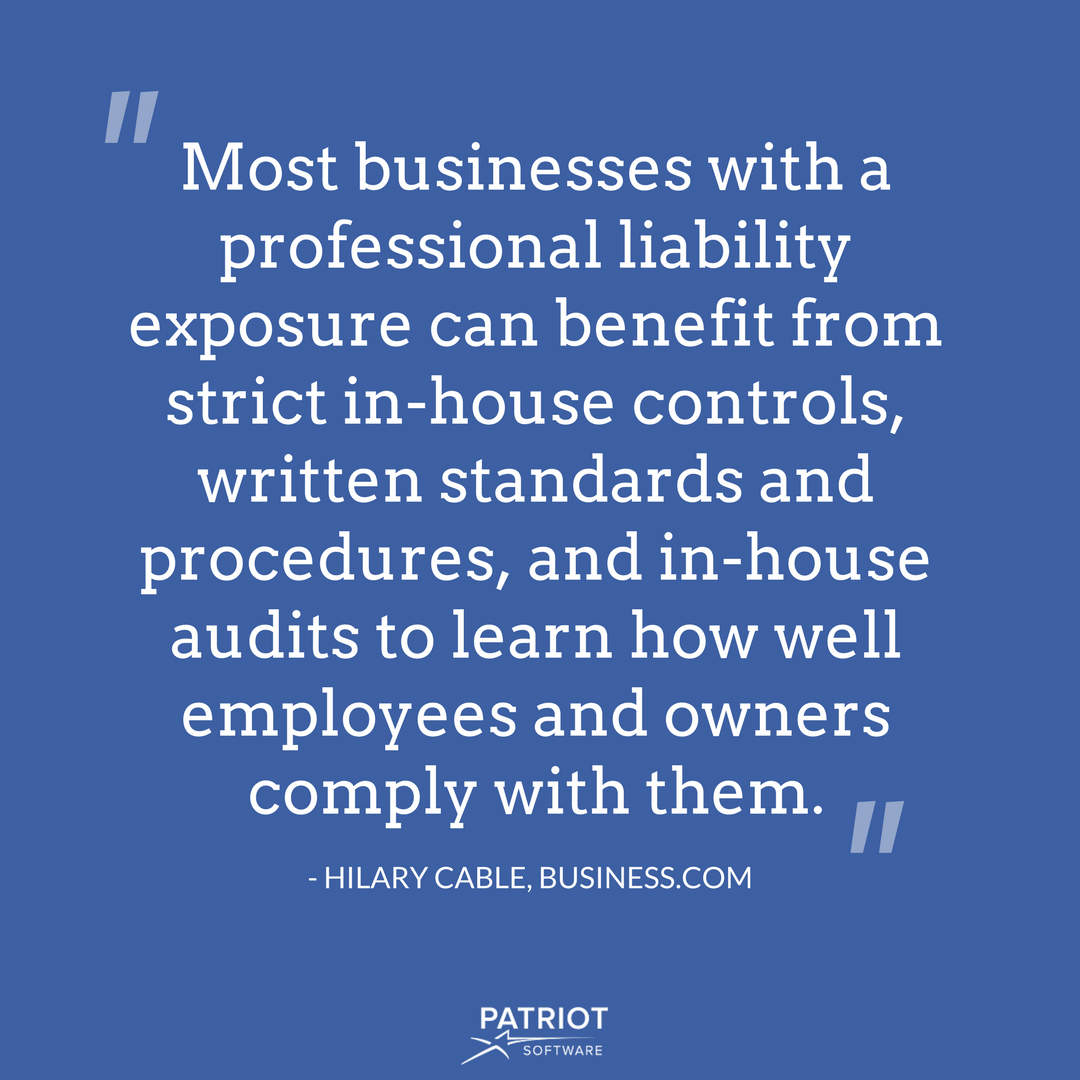Everyone makes mistakes. But, an error made at your business could be costly or even cause you to go under. You can protect your business with an errors and omissions insurance policy. Errors and omissions, or E&O, can save your company from certain customer lawsuits.
What is E&O insurance?
E&O insurance protects professionals who provide recommendations, advice, guidance, or services. Like any small business insurance policy, E&O can be purchased through an insurance company or broker. Depending on your industry, E&O insurance might have a different name. The policy could also be called professional liability insurance or malpractice coverage.
E&O can protect businesses against claims of financial loss or damaged reputations. If a client claims a service provided by a business professional was incomplete, inaccurate, or negligent, the insurance company providing E&O insurance is contacted. Some client claims might be valid, while others are questionable.
Errors and omissions insurance is essential for businesses that provide a service. Without E&O, a business could seriously suffer from a customer-initiated lawsuit.
For example, you deliver materials to professional builders. You type your client’s address into your GPS incorrectly and get lost, which makes the delivery very late. Because you are not on time, your client’s customer finds another builder and they lose the sale. E&O insurance will protect you if the builder claims you caused them to lose money.
What does E&O cover?
- E&O insurance covers the costs associated with defending your business against a customer’s professional negligence claim. The following items are usually included in an errors and omissions clause:
Lawyer fees - Court and administrative costs
- Settlements
- Judgements
- Negligence
- Defense costs
- Copyright infringement
- Temporary staff and independent contractors
- Claims for past services provided
- Claims and damages
How much E&O insurance do I need?
Errors and omissions insurance typically covers costs up to a predetermined dollar amount. The amount is usually specified in the policy terms.
By getting E&O insurance, you save a lot of money in the case that your business is sued. For example, you might pay $1,300 per year for a policy that covers up to one million dollars of damage. Because the difference is so huge, it makes sense to get E&O insurance for your small business.
The amount of errors and omissions insurance necessary varies from business to business. At the very least, make sure you have minimum coverage. As the level of risk increases at your business, so should the depth of the E&O policy. You can always talk to an insurance agent to discuss how much E&O you need.
How much is errors and omissions insurance?
The number of claims filed and the dollar value of the claims influence the cost of maintaining the policy. In general, the more claims filed, the higher the insurance premium.
Some claims are not covered by E&O insurance. Errors and omissions does not protect you if you are involved in fraud, illegal activity, or intentional acts of negligence.
E&O policies only cover economic losses. Physical harm and property damage fall under general liability insurance for small business, not E&O. You need both policies to reduce your business’s risk. And, your E&O insurance might not include cyber liability insurance, which covers financial losses due to data breaches.
Who needs errors and omissions insurance?
E&O insurance covers situations that traditional liability insurance policies do not cover. You should have errors and omissions liability insurance if you provide a service for a fee. If you don’t perform the service correctly or don’t deliver on time, the effects could cost your client. In these cases, E&O insurance coverage is essential.
Typically, accountants, bookkeepers, consultants, financial planners, and lawyers buy E&O insurance. Other businesses might include advertising agencies, web hosting companies, and event planners. Bottom line: If you provide a service, you should have E&O insurance.
Errors and omissions insurance can be purchased to cover employees. If you work as an independent contractor, you can also buy E&O insurance. When applying for errors and omissions coverage, provide the agent with accounts of any past claims.

Things to keep in mind
As you shop for E&O insurance, keep in mind that not all policies are created equal. An errors and omissions clause that works for one company might not make sense for another. E&O coverage is based on your business’s needs, risk level, and business budget.
Liability limits and deductible amounts will vary between insurance providers. And, some policies might exclude certain coverage types. To find the right policy, get quotes from multiple insurance agents and compare terms. Make sure you understand all parts of the policy before signing on.
E&O insurance is time sensitive. If a client makes a claim against your business before you get a policy, you can’t use its benefits. It’s best to get E&O insurance before something occurs at your business.
Need a simple way to keep track of insurance payments and other expenses at your business? Patriot’s accounting software is easy-to-use and made for the non-accountant. We offer free, U.S.-based support. Try it for free today.
This article has been updated from its original publication date (9/10/2012).
